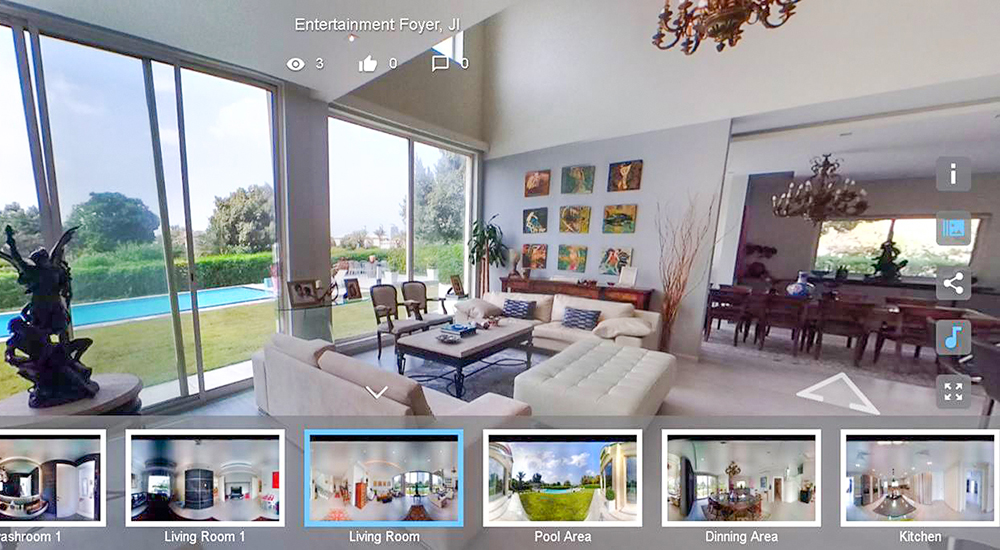How Real Residential Or Commercial Property Works

-
What Is Real Residential or commercial property?
Real residential or commercial property includes land and the permanent structures on it, however it varies from realty in that it consists of ownership rights that don't always exist with property. Understanding what real residential or commercial property includes is essential when buying a home or a business, particularly if the rights that include genuine residential or commercial property are very important to your purchase.
- Real residential or commercial property includes whatever natural and synthetic at, above, and listed below the earth's surface area.
- Moveable belongings like automobiles, clothing, furnishings, and other individual residential or commercial property aren't considered real residential or commercial property
- Real residential or commercial property is essentially realty, plus the needed ownership rights.
How Real Residential Or Commercial Property Works

To understand real residential or commercial property, it assists to first comprehend realty, which is defined as tangible residential or commercial property like land, structures on the land, and geographical features like trees, creeks, and stones. Property also consists of fixed assets like permanent improvements you might have made to the land. For instance, if you installed fences or energies, these are thought about set possessions because they're unmovable.
Real residential or commercial property includes the realty however includes intangible property-specifically, ownership rights. These intangible rights consist of the interests and opportunities the owner has to sell, lease, or earnings from the residential or commercial property, consisting of, for example, mineral rights or water rights.
Some rights, such as mineral rights, connected with genuine residential or commercial property can be offered. So, when you're purchasing land, it is essential to be sure the seller still holds all rights.
Real Residential Or Commercial Property vs. Personal Residential Or Commercial Property
Real residential or commercial property and individual residential or commercial property aren't interchangeable, though they sound similar. Real residential or commercial property can not be moved, while personal residential or commercial property consists of the belongings that you can move. For example, the land you own is real residential or commercial property, however your car, clothing, and RV are individual residential or commercial property
State laws vary in identifying what real residential or commercial property is and how it's offered. Generally, federal laws don't apply to real residential or commercial property because it's entirely within the jurisdiction of a state.
Real Residential Or Commercial Property vs. Realty
Real residential or commercial property consists of real estate-the land above and listed below, in addition to the irreversible structures of a location. However, real residential or commercial property identifies itself due to the fact that it includes ownership rights. If you don't have the residential or commercial property rights, you technically don't have decision-making power when it pertains to leasing or selling the land.
Examples of Real Residential Or Commercial Property vs. Realty
Land with a pond that includes fishing rights
A home with land and ownership rights
Rentals on land that you own and have ownership rights over
Land which contains a creek but does not featured water rights
Commercial residential or commercial property on land that you rent
Rentals on industrial real estate that you rent

Kinds Of Real Residential Or Commercial Property
Residential or commercial property rights can differ based on the kind of genuine residential or commercial property they describe. If you own real residential or commercial property, your interest in the residential or commercial property is referred to as "estate in land." There are a few categories that you need to know: freehold estates, nonfreehold estates, and concurrent estates.
Freehold Estates

Ownership rights that last a life time or indefinitely are called freehold estates. A holder of a freehold estate might have residential or commercial property rights for their life time or for the life time of a designated individual. Or they may have indefinite rights, which are given to their beneficiaries. This is called a cost easy outright estate.
Holders of a life estate normally can't pass the ownership rights to another individual.
Nonfreehold Estates
If you have a nonfreehold estate, you technically do not have ownership rights that you can pass to a successor. For this reason, they're also called a leasehold estate since you're basically leasing the residential or commercial property
There are four kinds of nonfreehold estates:
Estate for years: This is essentially a lease arrangement between a landowner and tenant, the terms of which have a guaranteed beginning and end.
Estate from year to year: This plan is an agreement that begins with specific terms, such as a year-long lease, however continues forever till terminated by the owner or renter. For instance, if somebody rents a house for one year, they may sign the least for another year when the period of time is up. They can continue doing this up until they choose not to renew the lease or the property owner provides them observe to abandon.
Tenancy at will: Although comparable to estate from year to year, this type of plan can be ended without prior notice by either the owner or the occupant.
Tenancy at sufferance: This isn't a plan that parties agree to ahead of time. Instead, this type of tenancy arises from somebody remaining on a residential or commercial property without the approval and legal right to stay. Originally, the person might have had a legal right to be there however never ever left when the terms of the arrangement ended.

Concurrent Estates
If a person has a concurrent estate, it simply indicates they share ownership with at least one or more people. This is also called occupancy in typical, joint occupancy, and occupancy by the entirety.
Real Residential Or Commercial Property Rights
With real residential or commercial property rights, you're entitled to particular opportunities, including:
- Right to own and utilize your residential or commercial property.
- Right to manage your residential or commercial property.
- Right to license and lease your residential or commercial property.
- Right to personal privacy and to leave out others
- Right to sell, gift, or leave your residential or commercial property to others as an inheritance
- Right to take advantage of the residential or commercial property as security through a mortgage

Real residential or commercial property includes not only property, such as land, a home, and the geographical functions on the residential or commercial property, but likewise the rights of ownership. Real residential or commercial property can include various kinds of rights, so if you're aiming to purchase a home or residential or commercial property, it is necessary to do your research so you know how you can use and hand down the residential or commercial property. If you're not sure about potential rights, don't think twice to ask a monetary advisor to read over the terms before buying residential or commercial property.
Cornell Law School: Legal Information Institute. "Real Estate."
Cornell Law School: Legal Information Institute. "Real Residential or commercial property."
New York City Bar Association. "Ownership Rights In Real Residential Or Commercial Property."
Cornell Law School, Legal Information Institute. "Personal Residential or commercial property."
Law Library-American Law and Legal Information. "Estate-Nonfreehold Estates."
Cornell Law School: Legal Information Institute. "Concurrent Estate."
1. Real Estate Agent
2. Real estate agent
3. Don't Sell Without a Representative
4. How Agents Are Paid
5. Commissions: Who Pays?
6. Listing Agreement
7. Exclusive Listing









